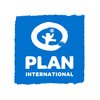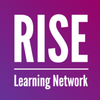Plan International is an international NGO that works in Africa, Asia and the Americas to promote children’s rights, and includes a focus on child protection.
Phone Number: (+44) 1483 755 155
Country Offices Working on Children's Care:
The Prevention Collaborative serves practitioners and social movements working to prevent violence against women and children. The Prevention Collaborative works to strengthen the ability of key actors to deliver cutting edge violence prevention interventions informed by research-based evidence, practice-based learning, and feminist principles - through four streams of work: knowledge, accompaniment, community and advocacy.
Red een Kind (Help A Child) is a Dutch Christian organization aimed at giving a future to children living in poverty through child-centered community development projects focused on engaging families, communities, and larger society to support children in need.
ReThink Orphanages is a cross sectoral global coalition. It works with key stakeholders in countries in the global north to shift their support (funding, mission, volunteering and tourism) away from orphanages towards strengthening families in the global south.
Decades of research show that growing up, separated from family, in a residential care institution, such as an orphanage, is harmful to a child's development and well-being. This has led to a global effort to shift away from institutional care towards family-based care.
The RISE Learning Network aims to promote and facilitate learning on Recovery and Reintegration (R&R) approaches that improve outcomes for children and adolescents affected by sexual exploitation (CSE). It is a project implemented by Family for Every Child, Retrak, and the International Centre: Researching Child Sexual Exploitation, Violence and Trafficking, University of Bedfordshire. The learning activities directly supported are in three focus regions – Latin America and the Caribbean, sub-Saharan Africa and South & Central Asia.
Save the Children is an international NGO that support’s children’s rights around the world, and focuses on protecting children from abuse, neglect, exploitation and violence. Save the Children works through a global Child Protection Initiative (CPI) to support children without adequate care by promoting deinstitutionalisation, strengthening families and working towards family/community based care solutions.
Save the Children exists to help every child reach their full potential. They make sure children stay safe, healthy and keep learning. Save the Children UK is a member of the Save the Children movement, which is made up of 28 member organisations. Save the Children UK operates in more than 120 countries.
SFAC aims to ensure that everyone providing care for vulnerable children can access training and professional support that is accessible, adaptable and applicable to their own culture and context. They work closely with local partners to help them set up and implement systems and procedures appropriate to their organisation to allow them to provide the best possible care for the children they work with.
The Problem:
SOS Children’s Villages International is an international NGO that works with communities and governments to prevent family breakdown and to care for children who have lost parental care, or risk losing it.
To contact, please fill out the contact form available here.
Country Offices:
SPOON works toward building a world where children without families and those with disabilities are seen, nourished, and given a chance to thrive. SPOON creates and spreads readily accessible tools that bring critical nutrition and feeding practices to children who often go unseen. They work with partners to equip caregivers with the knowledge and tools they need to ensure adequate nutrition and safe feeding – and train them to teach others.



